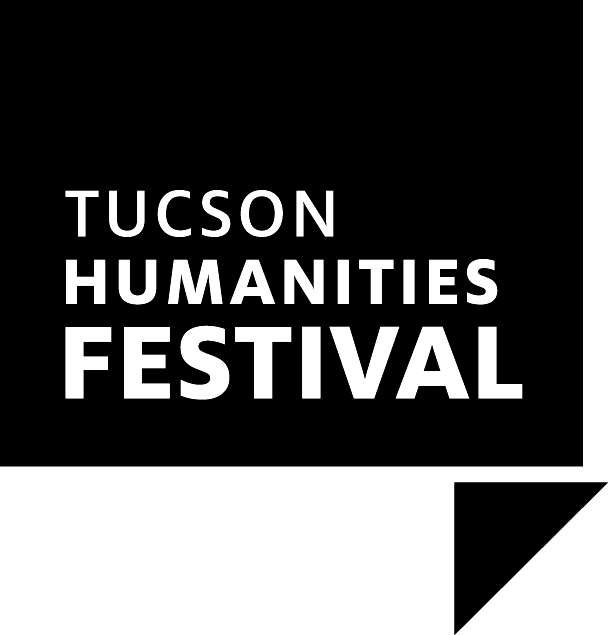2014 Tucson Humanities Festival

The week long series of events showcases professors and topics from the College of Humanities, introducing audience members to languages, literatures and cultures of the world.
2014 Tucson Humanities Festival Videos
Geishas to Harajuku Girls: The Changing Femininity of Japanese Women
Presenter: Maggie Camp, East Asian Studies
Description
Professor Maggie Camp addresses the Western stereotypes that typically represent Japanese women as quiet, submissive, polite, and feminine. On the flip side, an average Japanese person may insist there is a lack of femininity exhibited by young Japanese women. But what is this ideal femininity? Does it really exist? Learn about the hegemonic norms and origins of modern femininity, and discover a variety of typical modern women who fall outside this “norm”.
Breaking the Mold: The First(?) Woman in Italian Literature
Presenter: Fabian Alfie, French & Italian Department
Description
In the midst of increasingly diverse Jewish life in contemporary Germany, a new generation of writers is redefining questions of German-Jewish identity. The descendants of those who decided to remain or return after 1945 mingle with those who arrived in large numbers from Eastern Europe after the fall of the Iron Curtain in the early 1990s. Increasingly, young Israelis and Americans have joined them and declared cities like Berlin their new home. In the shadow of the Holocaust, the decision to live in Germany has raised enduring questions. Moreover, the sustained engagement of German society with the legacy of this history permeates many facets of everyday German-Jewish life. This has resulted in internal debates and conflicts about what it means to be Jewish, and specifically German-Jewish in the 21st century.
Heroines, Hellraisers, and Homemakers: Famous Females in African Literature and Film
Presenter: Bonnie Wasserman, Africana Studies
Description
For a continent often referred to as “the motherland”, women have long played a pivotal role. Explore images of women in Francophone, Lusophone and Anglophone African literature and film. These portrayals cross time and place but our story begins with the traditional “Mother Africa” figure that appears in colonial poetry from Portuguese-speaking regions. Next, examine historical figures such as Nzinga, who fought against European colonialists and was later involved in the slave trade. Then, meet more recent figures from books portraying inter-racial relationships in post-colonial, African Islamic societies and women in polygamous families.
Daughters of Eve: Images of Women in the History of Christianity
Presenters: Karen Seat, Religious Studies
Description
Devil’s Gateway. Mother of God. Apostle to the Apostles. From the Genesis story of Adam and Eve to the New Testament texts encouraging both women’s silence as well as women’s unconventional public action, the Bible— and its interpretation by Christian communities—has loomed large in shaping the history of women in Europe, the United States, and around the world.
Mama is a Man: Gender and the Goddess Śrī Nārāyaṇī of Śrī Puram
Presenter: Caleb Simmons, Religious Studies
Description
Goddesses throughout history have come in many different forms. Some of the world’s oldest and most vibrant goddess traditions exist within the Hindu traditions, but how does goddess-centered devotion and philosophy translate into cultural assumptions about gender? Join us to discuss gender, sex, the divine feminine, and the male incarnation of the goddess Śrī Nārāyaṇī (Amma) at Śrī Puram in Tamil Nadu, India. Learn why Mama (Amma) can be a man.
The Silkscreen Revolution: An Exhibit of Cuban Poster Art
Presenter: Anne-Garland Mahler, Spanish & Portuguese
Description
Poster art produced following the Cuban Revolution offers a window into the island nation’s history and a truly revolutionary chapter in graphic design. With a unique graphic wit and exuberant colorful style, these posters rallied the Cuban people to the task of building a new society. They helped organize massive sugar harvests and national literacy campaigns, promoted solidarity with global liberation struggles, and celebrated Cuba’s cultural scene. Lincoln Cushing, author of Revolución!: Cuban Poster Art (2003) will guide us through the works’ rich social and artistic history. Join us for a reception immediately following the presentation.
City Girls: Berlin’s Modern Women of the Weimar Republic
Presenter: Barbara Kosta, German Studies
Description
Cut loose from a conventional female lifestyle of domesticity with her short hemline, bobbed hair, Cloche hat and cigarette, the new German woman became an icon of modernity during this period between World War I and II. She graced the streets of the city on her way to work, to shop or to a show. She enjoyed an unprecedented freedom of movement with a range of opportunities little known to earlier generations of women. Join us for a look at the modern woman, a prominent figure that emerged in a time of vast social changes, a time that was driven by the passion to invent, change, and entertain. Her presence transformed the cityscape, and the city of Berlin became her stage.
Wives, Widows, & Whoopee: The Lives and Loves of Russian Women
Presenter: Russian & Slavic Studies Department
Description
Russian women speak for themselves. A vengeful widow sending birds as incendiary bombs to raze enemy territory. A wife and mother abandoning her family to wage war against Napoleon. A cross-dressing saint. A Bolshevik revolutionary espousing free love. A brilliant bisexual poet. Meet these and other trail-blazing, hell-raising, rule-breaking, mold-shattering Russian women in readings of poetry and prose by members of the Department of Russian and Slavic Studies.

